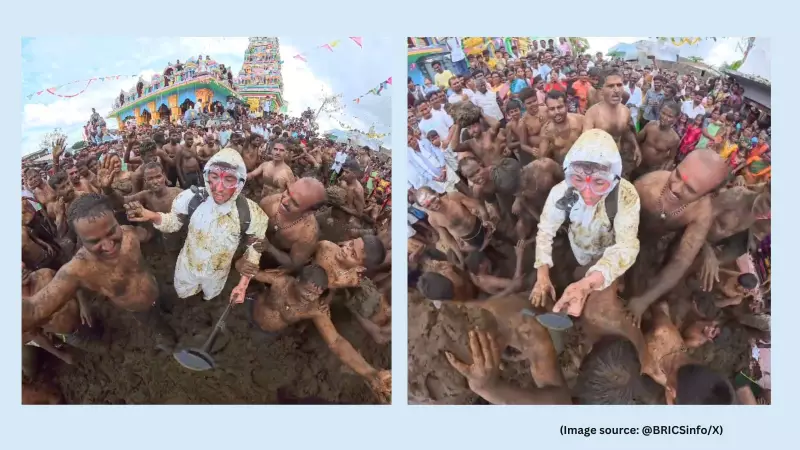
An American travel vlogger has found himself at the center of a raging controversy after filming and participating in a traditional cow dung ritual during his visit to a remote Indian village. Tyler Oliveira, known for his adventurous content, recently shared footage that has ignited a firestorm of criticism from both Indian and international audiences.
The Controversial Video That Sparked Outrage
In his now-controversial video, Oliveira documented his experience in a Indian village where he participated in the traditional 'Gobar' (cow dung) ritual. The ceremony, which involves the flinging of cow dung, is considered sacred by many local communities and is believed to bring prosperity and ward off evil spirits.
The video shows the YouTuber actively engaging in the ritual, throwing cow dung along with village residents. While Oliveira likely intended to showcase cultural immersion, the execution has been widely criticized as disrespectful and exploitative.
Social Media Erupts in Anger
The backlash was swift and severe across multiple social media platforms. Indian viewers expressed their disappointment and anger, accusing Oliveira of:
- Cultural appropriation and misrepresentation of sacred traditions
- Exploiting rural communities for content and views
- Lack of proper context about the ritual's spiritual significance
- Disrespecting local customs without understanding their deeper meaning
Many commenters pointed out that while cultural exchange is valuable, it should be approached with respect, understanding, and proper context rather than as mere entertainment content.
The Deeper Issue: Ethical Tourism in Digital Age
This incident has reignited the ongoing conversation about ethical tourism and the responsibilities of content creators when documenting indigenous cultures. The controversy highlights several critical issues:
- Informed Consent: Whether participants fully understand how their traditions will be portrayed to global audiences
- Cultural Sensitivity: The fine line between cultural appreciation and appropriation
- Monetization of Culture: The ethics of profiting from content featuring traditional practices
- Educational Responsibility: The need for creators to provide proper cultural context
Broader Implications for Content Creation
This isn't the first time a Western content creator has faced backlash for their portrayal of Indian traditions. The pattern raises important questions about power dynamics in cultural representation and the responsibility that comes with having a global platform.
Many are calling for content creators to collaborate with local experts, provide comprehensive context about the traditions they document, and ensure that their portrayals don't reduce sacred practices to mere spectacle.
As the digital landscape continues to shrink our world, incidents like these serve as crucial learning moments about cross-cultural understanding and the ethical responsibilities of global content creators.





